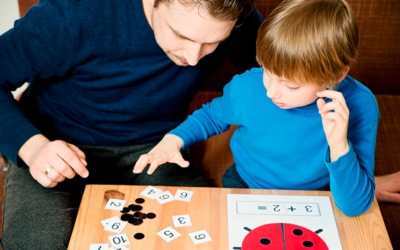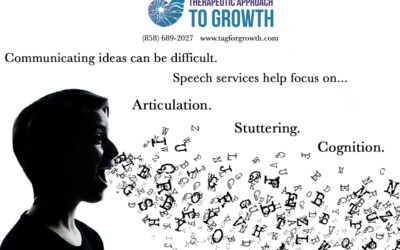Feeling Nervous About The Challenges of a New School Year?

Parents all over the world toss and turn with the start of a new school year.
Parents of children with special needs have additional fears about the quality of their school, the appropriateness of their child’s placement and the endless worry about making sure their child is able to enjoy meaningful, authentic relationships. The great news is that by using sound Relationship principles, parents can more efficiently support themselves, their children, and their school team as they move through this year with new joys, discoveries and accomplishments.
This two part series will give you information on new ways to support your child and your child’s team of professionals during this time of transition, and how you can make this year the best year yet. Part one below focuses on starting the year off right with your child, while the focus of part two is having collaborative efforts with your child’s school team.
Step 1: Establish and Strengthen Relationships
Begin the school year with a strong sense of emotional engagement with your child. Take the pressure of the new academic year as you connect on an emotional level with few demands. Take time to really reconnect and strengthen your relationship as you move into this year of new experiences. Some ideas to achieve this may involve reading books together, taking a walk, cooking together or playing a fun game of Tag, for example. What is most important is that the experiences are mutually enjoyable and authentic.
Step 2: Work Collaboratively
Employ collaborative methods of conflict resolution with your child. Take time to identify your, as well as your child’s, needs and find a way to meet in the middle. If your concern is that the homework gets done, and your child’s concern is that the work is too lengthy, identify a solution that can serve both needs. In addition, take the time to identify core deficits that might be contributing to problems. In other words, look beyond the behaviors and determine a deeper reason for breakdowns. Help your child develop increased self-awareness so that they are more able to identify and work with their strengths and challenges.
Step 3: Set clear and consistent goals
Help your child develop and plan their own goals and then support them in their endeavors. When children feel as though they are able to set their own goals, they are more internally motivated and successful. Research shows that people who write goals down are significantly more likely to succeed than those who don’t, so take a vague goal and make it clear, measurable and observable, as well as criteria for mastery. This allows you to gauge growth and mastery, and enables your child to see more clearly their amazing progress and accomplishments.
Step 4: Celebrate accomplishments and reflect
Take time to acknowledge successes and focus on growth and the process. Taking a process/progress-based focus instead of an outcome-based focus decreases the pressure and allows you to celebrate progress over perfection. This provides an opportunity to reframe challenging situations to focus on growth and what can be learned from the obstacle. Additionally, children often do not understand or notice their growth, which highlights the importance and benefit of clear feedback. For example, a parent may remind their child of how far they’ve come, or help them to understand how they handled a social situation well. Children can then use that feedback as they are presented with similar future situations.
At Therapeutic Approach to Growth, we value collaboration, relationships, goal setting and celebration. By taking these principles and applying them to your interactions with your child, you may see that the anxiety and fear over a new school year melts away as you look forward to a year of growing, learning and celebrating.
To learn more about how we can support your child’s school team give us a call at 858 689-2027.
-Amber Sobrio-Ritter
Related Posts
TAG Winter Wonderland 2021
2021 Winter Wonderland Our annual Winter Wonderland Event was held Dec 2021 This event is special for our team and families. We enjoy games, events and treats.Related PostsWe're Here Whenever You Need Us9466 Black Mountain RdSuite 100San Diego, CA 92126 Phone: (858)...
Electronics & Autism
For many, using electronics is like an addiction, because the child feels so much more competent when using electronics than engaging in dynamic interactions.
The Importance of the Guided Participation Relationship
Since the beginning of time and observed in every culture in the world, is the Guided Participation Relationship (GPR). The GPR is the authentic collaboration between a more experienced “Guide” and a willing “Apprentice.”
When to seek Speech Therapy for Your Child
While a Speech Language Pathologist (SLP) has many areas of expertise, (fluency/stuttering, social language, overall language development including grammar, vocabulary, understanding concepts, following directions, etc.), the concept of articulation, or sound production, may warrant the most questions for parents of school-aged children.
The Hidden Foundations For Fine Motor Skills
Fine motor skills can be defined as the skilled coordination and movement of the small muscles of the hands, fingers, tongue and mouth. An occupational therapist can help a parent understand and identify the hidden foundational skill areas that are impacting the child’s growth.
We're Here Whenever You Need Us
San Diego
9466 Black Mountain Rd
Suite 120
San Diego, CA 92126
Phone: (858) 689-2027
Carlsbad
2035 Corte Del Nogal
Suite 165
Carlsbad, CA 92011
Phone: (858) 689-2027
Temecula
27349 Jefferson Ave.
Suite 114
Temecula, CA 92590
Phone: (858) 689-2027




